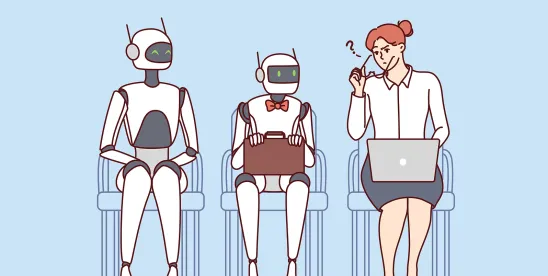Building on last year’s Notice of Inquiry, the Federal Communications Commission (“FCC” or “Commission”) is poised to consider a draft Notice of Proposed Rulemaking (“NPRM”) at its August 7, 2024 Open Meeting that would further address the use of artificial intelligence (“AI”)-generated automated calls. Specifically, the FCC proposal would “define AI-generated calls and propose new rules that would require callers to disclose to consumers when they receive an AI-generated call.” The background framework for the agency’s proposed actions is the consent and other relevant requirements of the Telephone Consumer Protection Act of 1991 (“TCPA”), which the FCC is responsible for implementing.
The Commission has previously declared that AI technologies that generate human voices are covered by the TCPA. And it has already responded to potential harms with use of AI and automated calling.
In releasing the draft NPRM, Chairwoman Jessica Rosenworcel, who has prioritized the issue of robocall regulation, commented that in light of those potential harms, “’[w]e want to put in place rules that empower consumers to avoid this junk and make informed decisions.” To that end, the NPRM would now seek comment on the following key proposed rules:
Definition of AI-Generated Call – An “AI generated call” would be defined as “a call that uses any technology or tool to artificially generate a voice or text using computational technology or other machine learning, including predictive algorithms, and large language models, to process natural voice language and produce voice or text content to communicate with a called party over an outbound telephone call.”
Required Disclosure Re Consumer Consent – Artificial or Prerecorded Voice Messages – Callers making calls using AI-generated artificial or prerecorded voice messages would have to include “clear and conspicuous disclosure that the consumer’s consent to receive such messages may include consent to receive” such calls. Calls made by an individual with a speech or hearing disability would be exempt from TCPA requirements regarding artificial or prerecorded calls, using any (including AI) technology “designed to facilitate the ability of such individuals to communicate over the telephone.”
Required Disclosure Re Consumer Consent – Autodialed Text Messages – Callers making autodialed text messages including AI-generated content would have to provide similar clear and conspicuous disclosure concerning a consumer’s consent.
Disclosure at the Beginning of AI-Generated Voice Call – Callers using AI-generated voice would have to, at the beginning of each call, clearly disclose to the called party that the call is using AI-generated technology.
The NPRM also would also seek comment on technologies “on either the device or network level that can detect” potentially fraudulent or AI-generated incoming calls, so that consumers could be alerted, and that can potentially block similar future calls. At the same time, the FCC asks for input as to the “privacy implications of real-time content based call detection, alerting and blocking technologies…”
If approved, the FCC seeks initial comment 30 days after publication in the Federal Register, with any reply comments due 45 days after such publication.




 />i
/>i

